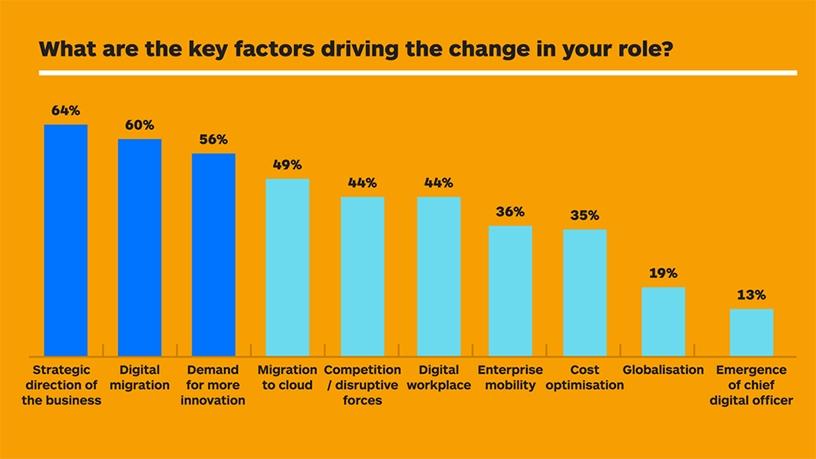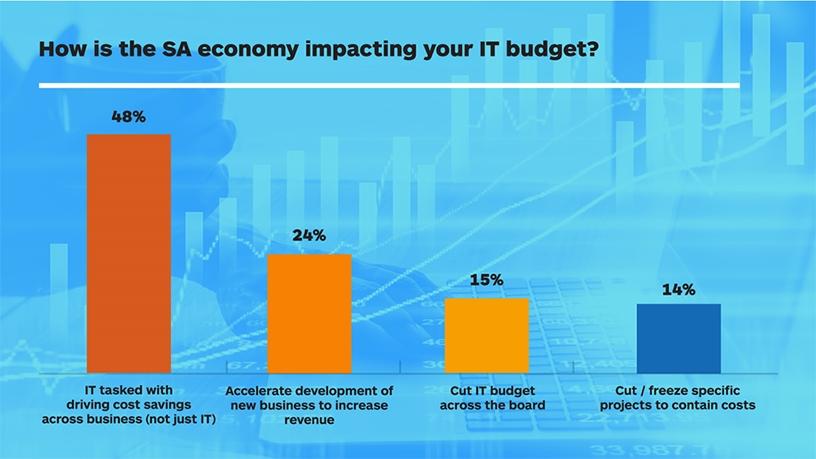
The pressure to adapt to the changing business and economic environment continues mounting for South African CIOs, with almost 60% reporting the demands on them are changing drastically or to a greater degree than similar management roles.
The need to transform their role is primarily driven by the shifting strategic direction of their organisation, digital migration and the demand for more innovation across the business.
These points were some of the takeaways from the 2018 ITWeb Brainstorm CIO Survey, the results of which were revealed at the annual Brainstorm CIO Banquet last night.

The survey, now in its fifth year, is run in partnership with MTN Business, and captured input from over 170 CIOs or equivalent C-level IT executives from across the private and public sectors.
Almost 60% of CIOs report directly to the CEO or the executive board, which is an improvement compared to several years ago, noted Aki Anastasiou, host of Technobyte on Radio 702, who presented the results. In 2015, half of the respondents complained they had no access to the board, while that number has now dropped to 13%.
Despite this, only 27% of the respondents describe their relationship with business as excellent, with 41% reporting it is "a work in progress" and 17% admitting it is "challenging".

While CIOs clearly indicated they are under pressure to accelerate innovation, the survey reveals they have less time for this, as "driving business innovation" slipped behind governance and staying abreast of new technologies.
In the current economic recession, companies are looking to IT to optimise and automate operations and help save money. Almost half of the CIOs said their department is tasked with prioritising efficiency and cost savings across business, not just IT. In addition, a quarter of the respondents said they are "accelerating development of new lines of business to increase revenue".

When it comes to IT's ability to support business, the biggest concern remains the "inability to implement fast enough to meet business goals, along with the struggle to meet targets while lacking skills and working with inadequate budgets".
Over 40% of CIOs are "actively seeking specific, core-area skills", but only 16% are growing raw talent or have an active internship programme.
On the positive side, next year's IT budget is projected to go up, albeit in most cases (48%) only in line with inflation levels.

Standout findings
Discussing the results in a panel discussion led by Anastasiou, Sello Mmakau, CIO of the Financial Sector Conduct Authority, said he was surprised by the fact that 50% of IT budgets was being spent on business-as-usual activities, ie 'keeping the lights on'. He said digital transformation required budgets to be allocated differently, adding that he'd also like to see CIOs spending more time on nurturing talent.
For Tshifhiwa Ramuthaga, CIO of Barloworld Logistics, what stood out was the fact that CIOs were spending most of their time on aligning IT and business. She queried whether this meant that digital strategy was not aligned with business strategy.
She said her priority was to accelerate the launch of new products for the business to ensure it retained its clients and didn't lose marketshare to a digital, software-driven disruptor.
Grant Field, CEO of FedGroup said it was evident that CIOs recognised the need to have strategic alignment with business, but stressed the importance of the modern CEO also understanding technology. Field, who was promoted from CIO to CEO role at FedGroup, said, "you cannot run a business if you do not understand technology... As CEO, I need to understand the technology in the same way I understand the accounts and the legal aspects."
Click here to view the results presentation slides.
Share